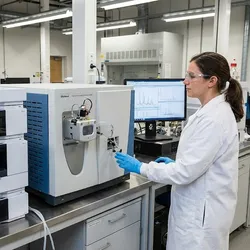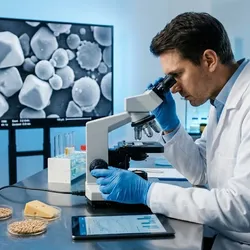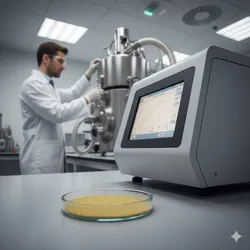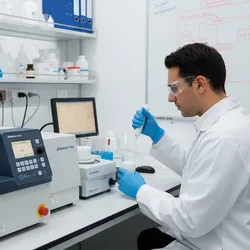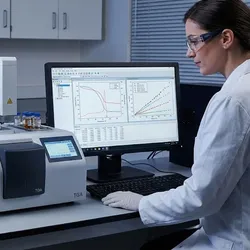Nigeria has faced many public health challenges, including foodborne illnesses, counterfeit drugs, and infrastructure limitations, that hinder the enforcement of stringent safety standards. The National Agency for Food and Drug Administration and Control (NAFDAC) serves as Nigeria’s primary regulatory body responsible for protecting public health by overseeing food, drugs, medical devices, and chemicals.
However, the road to establishing safe food and drug standards in Nigeria is complex for a wide variety of reasons. This article explores Nigeria's ongoing journey to safer health practices, highlighting the public health challenges, NAFDAC's role, and how partnerships with companies like Elga LabWater are facilitating vital advancements in water purity to support food and drug safety.
Public health and regulatory gaps
Nigeria’s large population, economic diversity, and geographical vastness creates challenges in managing public health. NAFDAC is at the forefront of ensuring health safety in the country. But the organization’s pursuit of internationally recognized food and drug safety standards is further complicated by Nigeria’s diverse population, growing economy, and unique landscape, as well as infrastructure limitations, complex supply chains, and external regulatory hurdles. These challenges contribute to inconsistent safety standards, making uniform enforcement difficult across the country’s diverse regions. Nevertheless, NAFDAC has made considerable strides in modernizing regulatory standards, leading to improved safety in food and drug practices.
The public health crisis in Nigeria
Counterfeit drugs and unsafe food
One of Nigeria’s pressing health concerns is the widespread prevalence of counterfeit medications and unregulated food products. These issues pose severe risks to the population as substandard drugs can be life-threatening, particularly for diseases like malaria, which require precise and effective treatments. Additionally, foodborne illnesses, often stemming from poor sanitation, represent another substantial threat to public health.
Challenges with regulatory enforcement
Despite NAFDAC’s progress in regulating food and drug safety, enforcing these standards in rural and remote areas remains a challenge. Limited infrastructure and healthcare access make regulatory oversight challenging in these regions, where counterfeit goods often thrive. The illegal trade in counterfeit goods is harder to combat in regions with limited resources, which results in substandard products circulating freely and putting lives at risk.
Rebuilding public trust
Public confidence in the safety of food and drug products is required for the success of health initiatives. NAFDAC has worked to restore trust through transparency and communication, ensuring that local citizens have reliable access to safe products. These efforts are part of a larger strategy to reinforce the public’s faith in NAFDAC’s work and its mission to protect the nation’s health.
Historical barriers to NAFDAC’s progress
Infrastructural gaps and limited resources
Nigeria’s health and safety infrastructure has been constrained by years of underfunding, limited resources, and outdated equipment. Laboratories responsible for testing the safety of food and drugs commonly operate with minimal staff and lack access to the modern technology essential for advanced testing methods. The scarcity of resources and outdated facilities has hindered NAFDAC’s ability to maintain rigorous safety standards.
Complex bureaucracy and supply chain issues
Nigeria’s regulatory system is often burdened by bureaucratic inefficiencies and occasional corruption, complicating NAFDAC’s ability to enforce strict oversight. The intricate regulatory processes slow down inspections and impede timely action on public health threats. Additionally, complex supply chains, exacerbated by counterfeit goods, allow unsafe products to evade detection, remaining in circulation for extended periods.
Resource constraints and personnel
Managing food and drug safety for over 200 million Nigerians is a monumental task, especially with limited financial and human resources. The demand for skilled personnel and modern equipment to meet advanced testing requirements continues to challenge NAFDAC. Large-scale investments in laboratory modernization, staff training, and technological upgrades are needed to improve public health safety.
Water quality and its impact on public health
Water’s role in food and drug testing
Water quality plays a critical role in both food production and pharmaceutical manufacturing. Contaminated water can undermine product safety, and laboratories rely on ultra-pure water to ensure the accuracy of food and drug testing. Reliable water purity is essential for maintaining consistent results, enabling NAFDAC to enforce safety regulations effectively.
Water quality in laboratory settings
In NAFDAC’s laboratories, access to ultra-pure water is crucial for achieving accurate food and drug testing results. Unfortunately, many facilities lack the advanced water purification systems necessary to maintain the high levels of water purity required for such testing, which directly impacts the agency’s ability to enforce public health standards.
NAFDAC’s efforts to modernize regulations
Modernizing for a safer future
NAFDAC has introduced modernization initiatives to bolster food and drug safety standards, which include public education campaigns and stricter regulatory enforcement. These initiatives are further strengthened through collaborations with international organizations, allowing NAFDAC to access advanced technologies, training, and resources to close regulatory gaps.
New regulatory initiatives
In addition to modernization, NAFDAC is enhancing the traceability of products throughout the supply chain to ensure food and drug safety from production to sale. These initiatives involve adopting more stringent testing procedures and leveraging technology to improve NAFDAC’s capacity to identify counterfeit or unsafe products before they reach consumers. The emphasis on traceability reinforces NAFDAC’s commitment to protecting public health at every stage of the supply chain.
Elga’s PURELAB® Chorus System
Addressing water purity challenges
One of NAFDAC’s critical challenges has been securing consistent access to high-quality water for laboratory testing. To address this, NAFDAC partnered with ELGA LabWater to implement the PURELAB® Chorus system, an advanced water purification system designed to deliver ultra-pure water necessary for precise testing. ELGA's PURELAB® Chorus 1 Complete provides recirculation of purified water through our modular reservoir to maintain consistent peak water purity at 18.2 MΩ.cm. The system’s technology reduces reliance on bottled water, lowering costs and supporting environmental sustainability efforts. By enhancing water quality in laboratories, NAFDAC has improved the reliability of its tests, strengthening its food and drug safety programs and increasing public confidence in regulatory measures.
Impact of the PURELAB® Chorus System
“The Chorus 1 Complete 10 L/H and PURELAB® Chorus 60 Litre Reservoir is very effective and working perfectly well," said Dr. Charles Nwachukwu Uchenna, NAFDAC Director of Food Central Laboratory, Oshodi. Indeed, the implementation of the PURELAB® Chorus system has had a profound impact on NAFDAC’s regulatory efforts, enabling laboratories to achieve greater precision in food and drug testing.
With reliable access to ultra-pure water, NAFDAC is now better positioned to uphold high safety standards, ensuring that Nigeria’s food and drug regulations align with international practices. This development not only enhances public health protections but also positions Nigeria as a leader in the fight for food and drug safety.
A safer future for Nigeria
NAFDAC’s commitment to improving food and drug safety is unwavering. While the agency’s journey is ongoing, modernization efforts and strategic partnerships are driving Nigeria toward a safer future. The implementation of Elga’s PURELAB® Chorus system demonstrates how innovative solutions are instrumental in addressing public health challenges and meeting global safety standards. As NAFDAC continues its efforts, Nigeria is poised to create a public health landscape that prioritizes safety, transparency, and trust, ensuring a healthier future for all its citizens.






